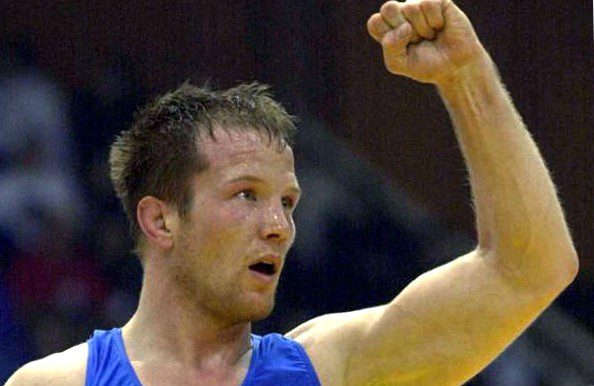
"Jolts are challenges that you have to tackle" – a sentence that sounds so simple, but whose implementation is not always successful. Successful ex-wrestler alexander leipold showed how this could be achieved in his presentation at the business evening hosted by the district, the business juniors and the savings bank.
"Every one of us experiences difficult situations. How can we deal with it?" – not only district administrator thomas bold hoped for a practical answer to his opening statement by alexander leipold, but also the 100 guests in the savings bank pavilion. Host roland friedrich outed himself as ex-treasurer of a wrestling club and thus as a fan, who not only praised the atmosphere in the halls, but also the fairness between the athletes. Barbara gutmann, a member of the board of the junior economists of bad kissingen, told of meeting him by chance under the southern sun, where the desire arose during dinner to win alexander leipold as a speaker for a business evening.
Three-time world champion, four-time european champion, 34-time german champion and olympic champion in sydney in 2000 – with this and other honors, the native of lower franconia is one of the most successful freestyle wrestlers in the world. Alexander leipold proved in his 60-minute autobiographical lecture that these successes do not fall from the sky, but depend on many factors, and that jolts are also helpful in this respect. The likeable athlete looked back on almost half a century, because he learned the basic movements of a small child – turning on his stomach and crawling – on the wrestling mats, which were maltreated before him by his older brother. In his speech with the motivating title "who does not fight, has already lost – believe in yourself", he referred to this as a "challenge"."
Setting concrete goals
The first prerequisite is a functioning environment: initially the family, later the coaches, physiotherapists and the team. With humor and a good dose of tongue-in-cheek, he went from his childhood defeats to his first successes and his central driving force: setting concrete goals that are attainable, as well as hard work and perseverance. He substantiated his theses with examples from his sport, because "you have to practice a grip 5000 times in order to use it quickly and safely in a competition – and there are 100 wrestling grips".
German champion at a young age was the reward for this hard work, but also physical jolts such as back or knee problems and, in 2003, at the age of 35, three strokes that led, among other things, to hemiplegia. In this phase, too, he was helped by what had distinguished him as an athlete: defining a goal and striving for it with energy. Alexander leipold loved to share with the audience what was probably his most difficult fight, and he added other motivating factors to his presentation: encouragement and support, as well as praise. In the end, he achieved his goal, and just six months later he was back on the wrestling mat, and it was not so much a question of victory or defeat. After his active career, he studied to become a graduate coach, was appointed national coach for freestyle wrestling, and volunteered on many levels.
"Being open to new challenges was always a motto of alexander leipold and he found it with the invitation to rtl’s "let’s dance. With humorous anecdotes, video clips and a slap in the face to set the mood for the slow waltz, he ended his talk with a laugh, a lively atmosphere and some applause. It got serious at the end of the presentation, when "believe in yourself – believe in your goals" from the german tenors in the sparkasse pavilion and alexander leipold leaning on the lectern, lost in thought.